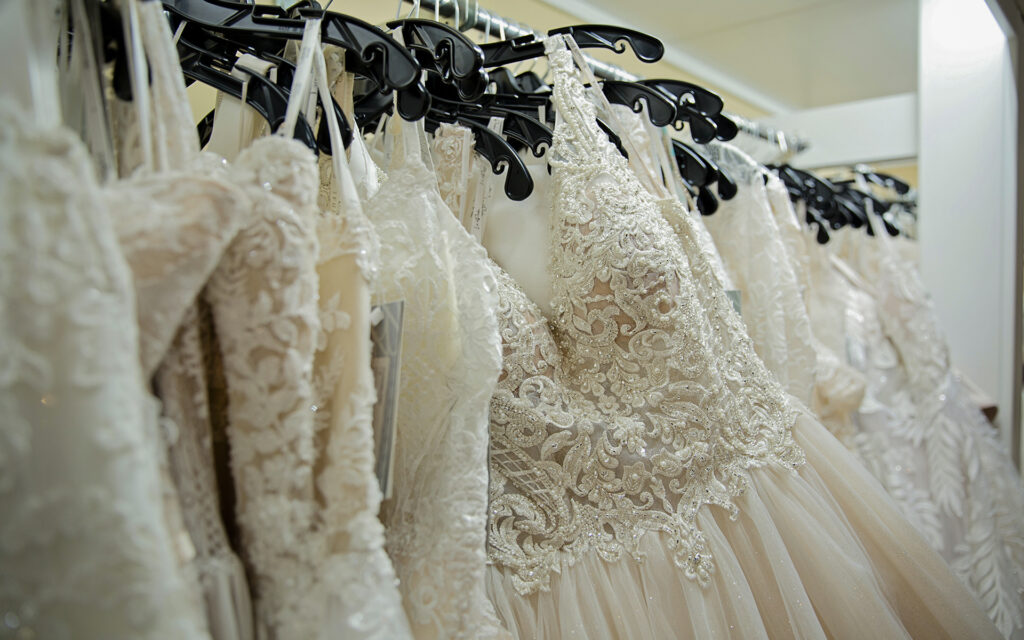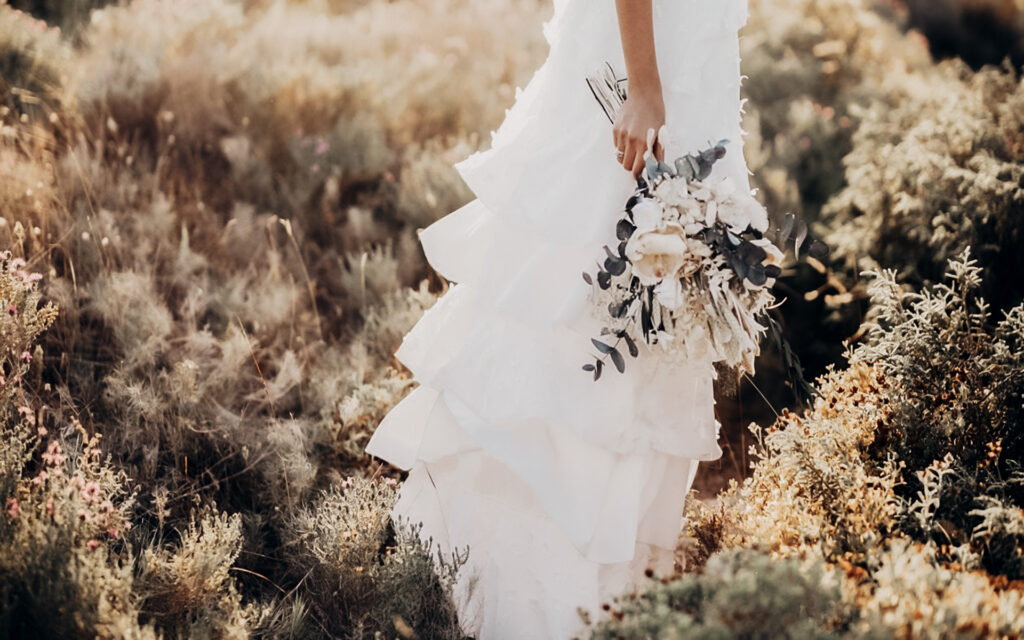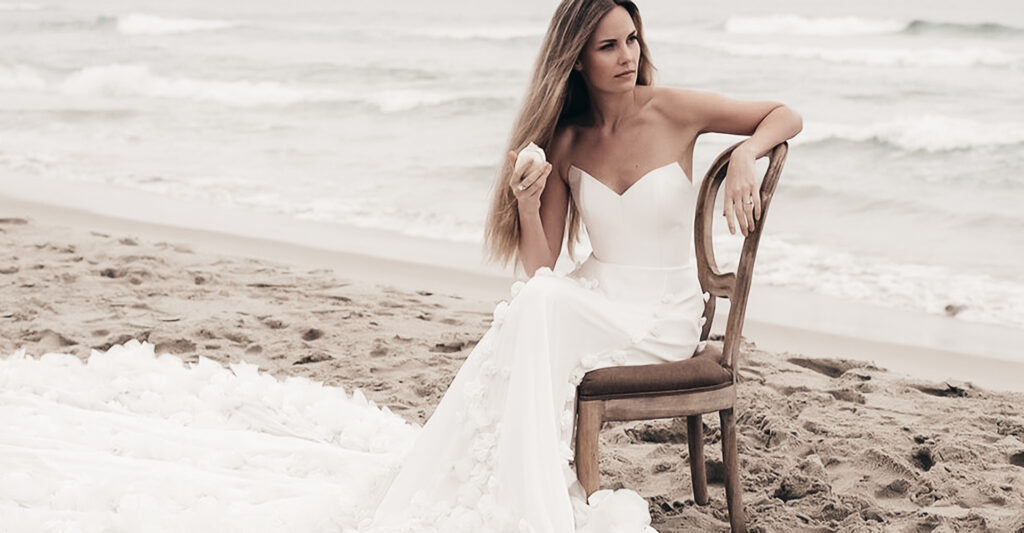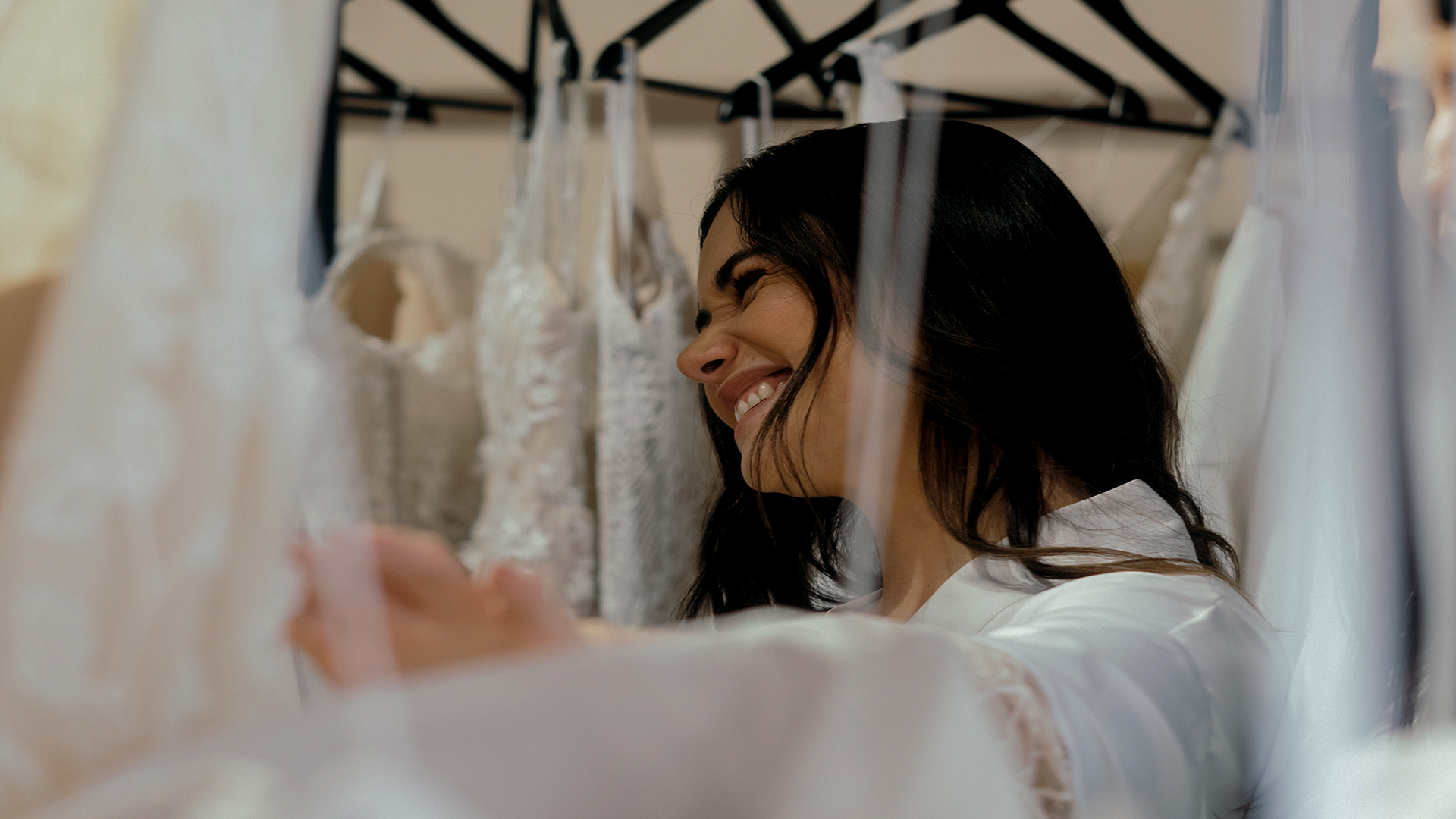The wedding day is a very important moment for many, and the wedding dress is undoubtedly one of the protagonists on this special day. However, in the era of environmental awareness and sustainability, more and more people are wondering whether it is possible to reconcile the desire for a dream wedding dress with an ethical and sustainable choice. Fortunately, the bridal fashion industry has embraced the challenge of creating sustainable wedding dresses, offering options that respect the environment without sacrificing elegance and style.
The fashion world has long received criticism for its ecological and social footprint, and wedding attire is no exception. The production of a traditional wedding dress requires a large amount of natural resources, such as water and cotton, and often involves the use of environmentally harmful chemicals. In addition, production processes may involve exploited labor and wages that do not match the effort made. Finally, the time-limited use of such a garment makes it an item whose use is limited to a few hours. However, in recent years, some fashion houses and many designers have been working to improve the situation by offering sustainable wedding dresses made from eco-friendly materials, while also following ethical production and disposal practices.

How to produce the perfect dress
The production of sustainable wedding dresses requires the use of eco-friendly fabrics and materials. For example, organic silk, obtained from sustainably raised silkworms, is a popular choice for eco-friendly wedding dresses. In addition, fabrics such as tencel, derived from wood cellulose from sustainably managed forests, and organic cotton, which uses no pesticides or chemical fertilizers, are available. Some designers are also exploring innovative materials, such as pineapple fiber or recycled plastic, to create unique and sustainable wedding dresses.
In addition to materials, production processes also influence the sustainability of a wedding dress. Some designers focus on local craftsmanship and handmade work, reducing the impact of transportation and promoting local employment. In addition, some ateliers adopt upcycling practices, using pre-existing fabrics and dresses to create new garments. This practice reduces the waste of materials and creates unique and customized garments.
When it comes to wedding dresses, the cost can often be a determining factor in the choice. It is important to note that sustainable wedding dresses are not necessarily more expensive than traditional dresses. Many designers offer sustainable dresses at affordable prices, proving that ethical fashion is not a luxury reserved to few. In addition, investing in a sustainable wedding dress can be considered a forward-looking gesture, as you contribute to a fashion industry that values the environment and workers’ rights.

Where to find sustainable clothes for our special day?
To find sustainable dresses, you can explore different options. Many fashion houses and ethical designers have lines specifically dedicated to sustainable choices. These can be purchased directly from the ateliers or through their websites. In addition, there are stores that specialize in ethical and green wedding dresses, where you can find a wide selection of dresses made from eco-friendly materials. Some stores also offer the option of renting dresses, further reducing the environmental impact of the event.
An example of a store specializing in sustainable wedding dresses is “EcoBride,” with locations in several cities around the world. EcoBride works with designers who follow strict sustainability standards and offers a wide range of dresses made from organic and recycled fabrics. The store also provides brides and grooms with a guide to planning a sustainable wedding in all aspects, from choosing invitations to setting up.
Other ateliers dedicated to producing sustainable and ethical clothing:
- Leila Hafzi: Norwegian atelier known for its sustainable production philosophy. They use eco-friendly fabrics such as organic silk, organic cotton, and tencel. They also strive to ensure fair wages and safe working conditions for their artisans.
- Sanyukta Shrestha: based in the United Kingdom. The wedding dress designer is committed to sustainable fashion. She focuses on craftsmanship, making unique, custom-made gowns.
- Tara Lynn Bridal: located in the United States, is dedicated to creating waste-free gowns. They also offer rental services to further reduce environmental impact.
- Reformation Bridal: use recycled materials and eco-friendly fabrics such as viscose lenzing, and follow ethical production practices.
- Celia Grace: work with artisans in disadvantaged communities, ensuring decent wages and working conditions.
- Christy Dawn: use vintage fabrics or made from surplus production materials. Each garment is made to order, thus reducing waste.

In conclusion, the bridal fashion industry is taking significant steps toward sustainability and circularity of supply with wedding dresses that respect the environment and workers’ rights. Through the use of eco-friendly materials, ethical production processes, and innovative disposal and recycling practices, sustainable wedding dresses can be found without compromising style and elegance. Today’s brides and grooms have the opportunity to make a conscious choice, contributing to a fashion industry that aims for a more sustainable and responsible future.





